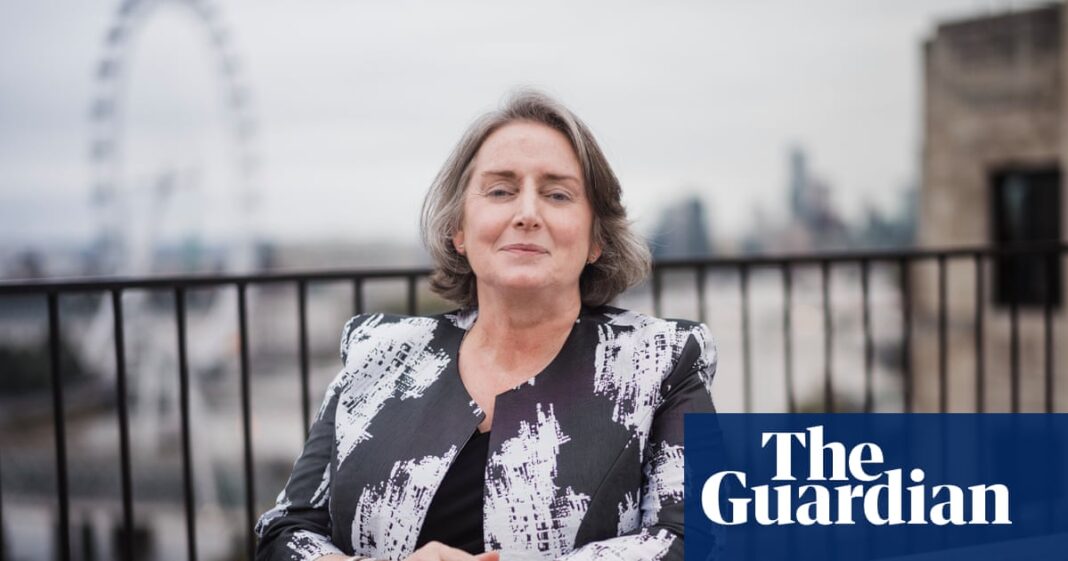The boss of one of Britain’s biggest housebuilders has urged the government to announce more support for first-time buyers to revive a property market that has cooled in the “very long shadow” of the looming budget.
Jennie Daly, the chief executive of Taylor Wimpey, also warned against an “accumulation of regulation”, arguing that a “perverse outcome” of green measures could be that it becomes unviable to build new homes in poorer areas of the country.
The expiry of a stamp duty holiday in March marked the first time in 60 years that there was no direct support scheme targeted at first-time buyers, Daly said.
She called for a similar property tax break, or the reintroduction of a help-to-buy equity loan scheme to aid first-time buyers, but said she had “limited expectations” that this would happen in the 26 November budget.
David Thomas, who runs the rival housebuilder Barratt Redrow, has also called for practical support, particularly for first-time buyers.
The government’s previous help-to-buy programme, which offered a 20% loan for new-build homes, assisted mostly first-time buyers to purchase 387,195 properties in the decade to March 2023, when it ended in England and Scotland. However, it was criticised for boosting housebuilders’ profits and causing house prices to rise, particularly in London.
Daly said an equity loan that allows first-time buyers to take out a loan-to-value mortgage of 75%-80%, with a lower interest rate, would “really start to move the first-time buyer into the market and that will have material benefits for the market as a whole” and the wider economy. Taylor Wimpey also offers them a 5% or 6% discount on the sale price.
She argued this would help the government achieve its ambitious target of constructing 1.5m homes in five years, and welcomed Labour’s planning reforms, which had happened at a “breathtaking pace”.
As the housing market cooled, Taylor Wimpey’s sales have dipped in recent months, and its order book is also down, similar to other builders.
Daly said the late budget “has cast a very long shadow on how the consumer is feeling”, with the chancellor hinting at a rise in income tax before the idea was taken off the table again, as well as talk of changes to stamp duty.
“People are just worried,” she said. “It’s just the sheer level of uncertainty, and uncertainty for the individual, and a house purchase is a very big commitment.”
But she pointed to rising expectations of an interest rate cut in December, and another one in the new year. “It’s not all doom and gloom.”
Housebuilders have been waiting for the government’s “future homes standard”, expected to be unveiled in December.
While Taylor Wimpey has started installing new technologies such as air source heat pumps in lofts, and its recent trial in Sudbury showed some energy bills dropped from £230 to £130 a month as a result, Daly warned about the cost of regulation.
after newsletter promotion
“Government are talking about potentially significantly increasing the amount of photovoltaic panels on roofs. But the flipside of that is it becomes even more expensive to deliver and therefore more likely to exclude more and more areas for new-build,” she said.
Daley said that while energy efficiency was important, “these regulations have a disproportionately negative effect in lower price areas”.
The high cost of complying with energy efficiency rules means that builders are more likely to opt for areas where they can easily recoup the cost. Build costs, such as materials and labour, have also risen by 20% in recent years, according to industry reports.
“In areas where people want to live but the prices are low, your ability to build reduces because you just can’t reach viability,” she said. “And I think that’s not always fully understood either by politicians or regulation makers.”
Under the rules, new homes will be required to use low-carbon heating such as heat pumps instead of gas boilers by 2027 in England, along with use of solar energy and improvements to the thermal efficiency of buildings.
“We have to be careful about this accumulation of regulation,” Daley said. “When you look at each element in isolation, you can say that’s good that there’s more biodiversity, it’s a positive that we’ve got greater energy efficiency in our homes. But if when they are all added together the outcome is that it’s not viable to build a home, you have a rather perverse outcome.”
It is understood that the government has no plans for a new help-to-buy scheme.
A government spokesperson said: “We are building the 1.5m homes this country needs to restore the dream of homeownership, and have introduced a new, permanent mortgage guarantee scheme helping buyers with a deposit as small as 5% to own a home.”


